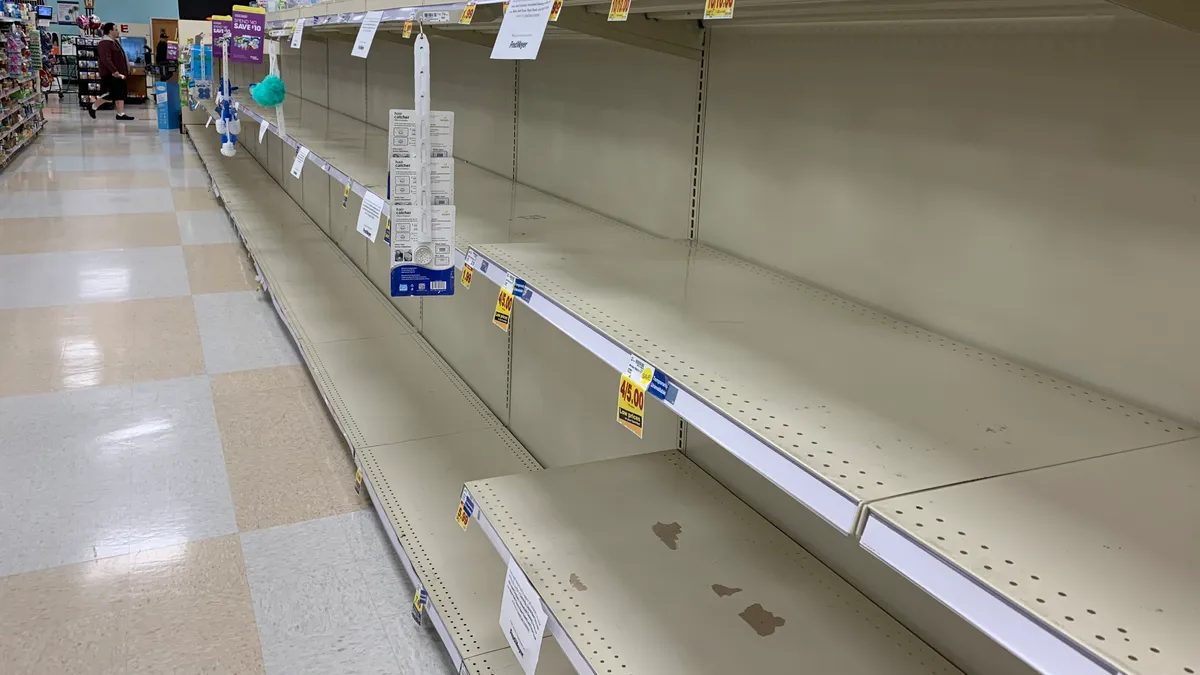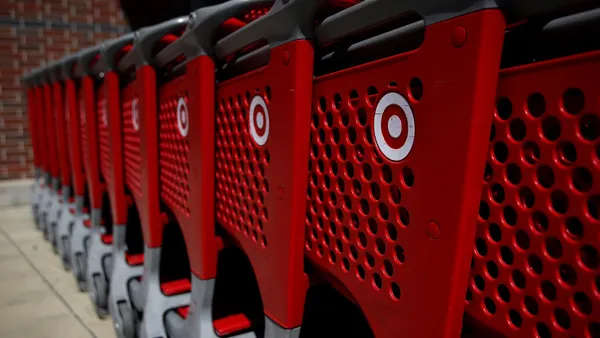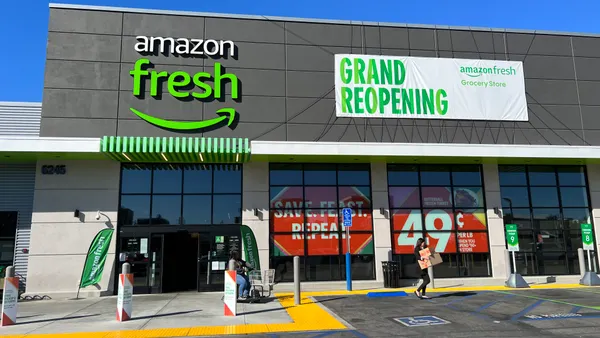Dive Brief:
- Product availability is a concern for 53% of grocery shoppers as they ponder a future after the coronavirus pandemic recedes, according to online surveys conducted in mid-June by Acosta, a consumer packaged goods marketing firm.
- Forty-five percent of the people Acosta surveyed said they believe finding low prices when shopping will be among their top concerns when shopping once the health crisis passes, and 48% said they expect to place a priority on social distancing.
- Nearly a third of participants in the research say they have increased their consumption of vitamins and supplements, and 21% are eating more foods classified as natural, organic or vegetarian. Thirty-three percent said their diet has become less healthy than it was before the pandemic began.
Dive Insight:
Panicked shoppers raced to stock up on essentials as the pandemic took hold in the United States in March, and it appears the empty store shelves they left behind remain top of mind as people consider what life will be like after the coronavirus relaxes its grip on their lives.
Notably, people are more worried about being able to find what they want when shopping than they are about what those items will cost, even as grocery prices rise at their fastest pace since 2011 and the economy reels after months of lockdowns.
The USDA expects retail food prices to climb by an average of 3% in 2020, outpacing the cost of eating out. Meanwhile, the Federal Reserve is worried that the economy could be in its shakiest shape in decades.
Acosta’s research underscores the impact the falling economy has had on Americans’ wallets. Overall, 37% of shoppers polled by the marketing firm said they have been weakened financially by the pandemic. An even greater percentage of millennials, 43%, reported that their finances have declined since the arrival of COVID-19, while smaller percentages of the Gen X and Baby Boomer segments of the population were likely to say their financial situation has worsened.
Despite the sharp rise in online orders food retailers have experienced during the pandemic, relatively few of the research participants cited e-commerce services as a priority as they look ahead. Twelve percent of shoppers said having the option to pick up groceries after the pandemic ends was a priority, while 10% reported feeling that way about grocery delivery services.
Participants in the research also said factors like the availability of specials, checkout speed and customer service were important when they envision life after the health crisis.














